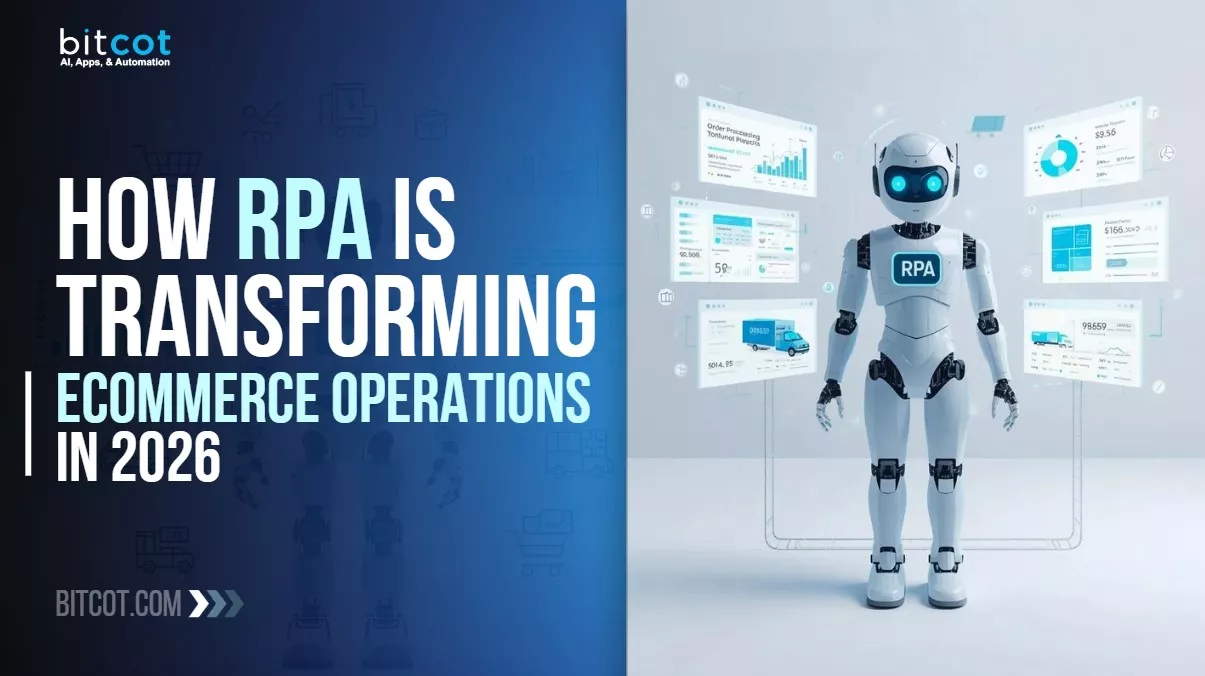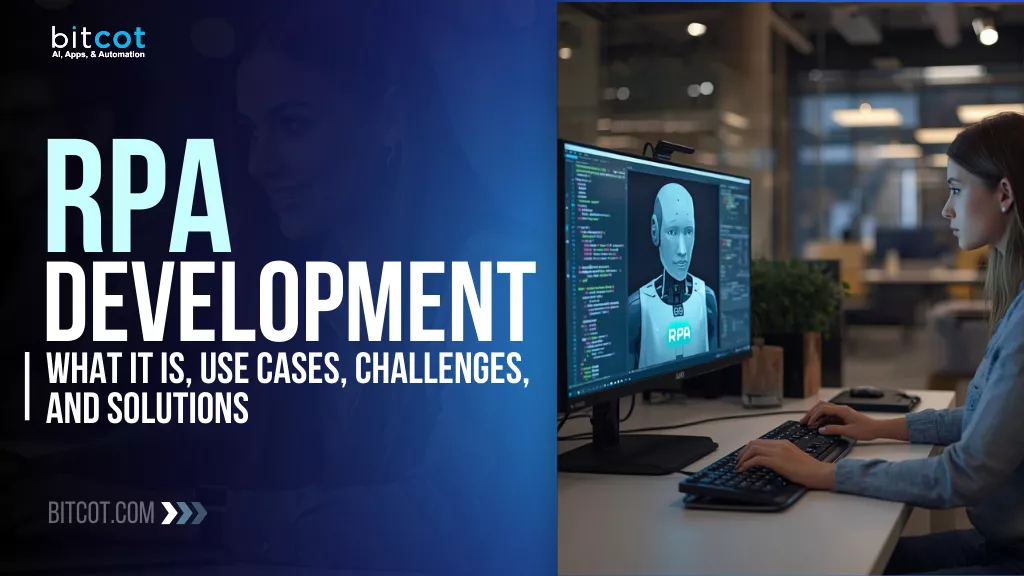
What if you could revolutionize your healthcare workflows, cut costs, and improve patient outcomes—all without replacing your existing EHR/EMR system? AI agents make it possible.
Healthcare today moves at lightning speed—and meeting the demands for accuracy, efficiency, and personalized care is non-negotiable. With rising expectations for better patient outcomes, smoother workflows, and lower costs, healthcare organizations are turning to innovative technology to stay ahead.
Enter AI agents—intelligent, autonomous systems designed to tackle complex digital tasks and transform how we use Electronic Health Records (EHR) and Electronic Medical Records (EMR).
Instead of replacing your existing systems, AI agents layer on top, automating tedious data entry, enhancing clinical decision-making, and improving data flow across platforms.
For healthcare leaders—from business owners to CTOs and nontechnical founders—grasping how AI agents work and what they can deliver isn’t just an IT concern. It’s a game-changing business strategy.
In this article, we’ll break down how AI agents are solving the biggest pain points in EHR/EMR systems and how Bitcot can help you implement smart, scalable AI solutions that deliver measurable impact.
Why Traditional EHR/EMR Systems Are Holding Healthcare Back
Electronic Health Records (EHR) and Electronic Medical Records (EMR) were introduced with big promises: faster workflows, better patient care, and smarter decision-making.
But for most healthcare professionals, the daily reality looks very different.
Instead of helping, these systems often slow things down. Interfaces are clunky. Data gets scattered. Entering the same information again and again wastes precious time. And documentation? It feels never-ending.
Here’s the root of the problem: most EHR/EMR systems were built to replace filing cabinets—not to support modern clinical workflows. They’re digital storage units, not intelligent assistants.
The impact is serious. Physicians and nurses are buried under administrative tasks, spending less time with patients and more time battling software. Burnout rates are climbing, and the quality of care is at risk.
Healthcare deserves better than outdated tech. It’s time to rethink how these systems are built—and who they’re really serving.
The Hidden Costs No One Talks About: Human and Financial
Most people don’t realize just how much time healthcare professionals lose to EHR/EMR platforms. On average, doctors spend nearly twice as much time on admin work as they do with actual patients.
And that imbalance comes at a steep price.
- Patient satisfaction drops when providers are glued to screens.
- Physician turnover rises as burnout hits hard.
- Critical details fall through the cracks, leading to missed or delayed diagnoses.
- Clinical workflows slow to a crawl, reducing overall efficiency.
- Operational costs skyrocket with every minute wasted on outdated systems.
This isn’t just an inconvenience—it’s a serious business risk.
Whether it’s a small private practice or a major hospital network, the struggle is the same. And now, even non-technical founders and healthcare execs are starting to connect the dots: legacy systems aren’t just a tech issue—they’re hurting the bottom line.
How AI Agents Are Revolutionizing EHR/EMR Systems
AI agents are changing the game in healthcare.
These intelligent digital workers are built to automate, optimize, and enhance the way tasks get done inside EHR/EMR systems. At Bitcot, we build generative AI-powered agents that plug directly into your existing infrastructure—no need to rip and replace.
The result?
Less manual data entry.
Smarter, faster clinical decisions.
Smoother workflows from start to finish.
But here’s the key: AI agents aren’t just another tech upgrade. They’re strategic tools that act like digital coworkers—ones who never get tired, never forget a task, and constantly learn how to do things better.
For healthcare organizations looking to improve efficiency without overhauling their entire system, AI agents are the most powerful (and practical) upgrade available today.
Why Healthcare Leaders Should Be Paying Attention
AI in healthcare isn’t hype—it’s a real, scalable solution to one of the industry’s biggest bottlenecks: inefficient EHR/EMR systems.
For business owners, CTOs, and even nontechnical founders, this means one thing: a faster path to ROI. With AI agents, you’re not just improving workflows—you’re unlocking better patient experiences and boosting staff productivity at the same time.
And the numbers back it up.
A 2024 Accenture report projects that AI-driven automation could save the U.S. healthcare system over $150 billion annually by 2026.
Think about that.
- Cut patient intake time by up to 70%
- Automate billing processes
- Improve compliance accuracy
- Enable predictive care with real-time data
All without rebuilding your existing EHR/EMR system from scratch.
This is where smart healthcare leadership meets smart technology—and the impact is too big to ignore.
Key Use Cases for AI Agents in EHR/EMR Systems

AI agents aren’t just tech upgrades—they’re practical tools solving real problems inside your EHR/EMR systems. Here’s how healthcare organizations are already putting them to work:
1. Automated Data Entry & Documentation
No more endless clicking or typing. AI agents can transcribe voice notes, extract key info from unstructured text, and auto-fill patient records. The result? Less screen time for clinicians, more face time with patients.
2. Smart Scheduling & Resource Allocation
By analyzing past appointment data and real-time availability, AI agents optimize scheduling and staffing. This means fewer no-shows, shorter wait times, and better use of clinical resources.
3. Clinical Decision Support
AI agents act as a digital second opinion—scanning lab results, analyzing patient history, and surfacing critical alerts. Integrated with your EHR/EMR, they support faster, more accurate diagnoses.
4. Patient Communication & Follow-Ups
From post-visit summaries to medication reminders, AI agents keep patients engaged automatically. They handle emails, SMS, and app notifications—boosting follow-through and satisfaction rates.
5. Billing & Claims Automation
Manual billing errors cost time and money. AI agents review codes, flag inconsistencies, and generate insurance claims on autopilot—speeding up reimbursements and reducing denials.
6. Data Harmonization & Interoperability
AI agents connect the dots across different systems, creating unified patient records. This leads to better coordination between departments, clinics, and even across healthcare networks.
The Real Benefits of AI-Powered EHR/EMR Systems

When you integrate AI agents into your EHR/EMR systems, the upside is massive. You’re not just improving processes—you’re transforming outcomes across the board. Here’s what healthcare leaders are seeing:
Better Patient Outcomes
With AI agents delivering accurate, real-time data, clinicians make faster, evidence-based decisions. Diagnostic errors go down, while patient care quality goes up.
Boosted Staff Productivity
Doctors and nurses can finally focus on what they do best—treating patients. Meanwhile, admin teams automate repetitive tasks like scheduling and billing, saving hours every week.
Stronger Compliance & Data Security
AI agents monitor data access and flag unusual activity in real time—keeping your organization aligned with HIPAA and other key regulations. Less risk, more peace of mind.
Scalable Without System Overhaul
No need to replace your existing EHR/EMR. Whether you’re using Epic, Cerner, Allscripts, or a custom platform, AI agents integrate seamlessly—enhancing what’s already in place.
How Bitcot Can Help You Implement AI Agents in Healthcare
At Bitcot, AI isn’t just technology—it’s a tool designed to solve real healthcare challenges.
No matter the size of your organization—a clinic, diagnostic center, or large hospital system—our AI agents are custom-built to fit your exact needs. Here’s what sets us apart:
- Effortless integration with your current EHR/EMR platforms, so you don’t have to start from scratch.
- Tailored intelligence by training AI agents on your own data for the most relevant insights.
- Instant automation of key processes from day one, reducing manual work and errors.
- Ongoing improvement as your AI agents learn and adapt to your evolving workflows.
We work closely with your team to build an AI strategy that drives real impact—helping you boost efficiency, reduce costs, and improve patient care. From concept to launch, Bitcot is your go-to partner for AI agent development in healthcare.
Final Thoughts
If you’re a healthcare executive, entrepreneur, or tech leader stuck with clunky EHR/EMR systems, AI agents might just be the breakthrough you need. They offer a powerful way to transform healthcare delivery—without costly overhauls or messy transitions.
At Bitcot, we build custom AI agents designed to fit your organization’s unique needs, so technology works for you—not the other way around.
The future of healthcare isn’t just digital—it’s intelligent.
Ready to see what’s possible?
Contact Bitcot today to schedule a discovery session with our AI experts and start your journey toward smarter healthcare.
FAQs About AI Agents in EHR/EMR Systems
What are AI agents in healthcare?
AI agents are autonomous software programs powered by machine learning and generative AI. In healthcare, they assist with clinical, administrative, and operational tasks to reduce manual workload and improve efficiency.
How do AI agents integrate with EHR/EMR platforms?
They use APIs, secure data pipelines, and natural language understanding models to interact with existing systems like Epic, Cerner, and custom-built platforms. Integration can be seamless and minimally disruptive.
Will AI replace doctors and staff?
No. AI agents are designed to augment human capabilities, not replace them. They handle routine tasks so clinicians can focus on patient care and decision-making.
What kind of ROI can I expect from AI in EHR/EMR systems?
Healthcare organizations typically see a reduction in operational costs, faster reimbursements, higher patient retention, and improved staff satisfaction within months of AI agent implementation.
How long does implementation take?
Depending on complexity and customization, initial deployment can take anywhere from 4 to 12 weeks. Bitcot ensures an agile and collaborative approach.
Can AI agents help with telemedicine?
Absolutely. AI agents can manage scheduling, documentation, and patient communication for virtual visits, ensuring smooth telemedicine workflows.












